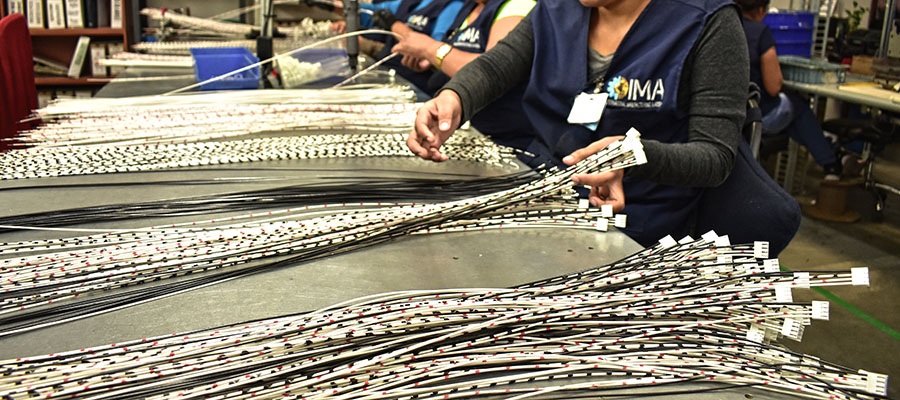
The manufacturing of customized cables has provided great value to the manufacturing industries, and more in these modern times of globalization, the point of customization is great and necessary to meet the needs of each company that requires them.
The starting points with the use of customized cables make companies gain a great advantage against the competition that does not carry this type of standardized practice.
What are custom cables
Custom cables are cabling solutions designed and manufactured to meet very specific electrical and mechanical requirements. Unlike standard cables, which are mass-produced for general applications, custom cables are tailored to the exact needs of a device or system.
The custom cable manufacturing process
Creating a custom cable is a complex process involving several key steps:
Design and specification
The first step is to thoroughly understand the customer’s requirements. This includes factors such as:
- Signal type (analog, digital, power).
- Voltage and current
- Cable length and flexibility
- Connector type and number
- Environmental requirements (temperature, humidity, vibration)
Component Selection
Once the specifications are defined, the appropriate components are selected:
- Conductors: The material (copper, aluminum, etc.) and wire gauge are chosen to ensure optimal signal transmission and current capacity.
- Insulation: The insulating material (PVC, polyethylene, etc.) protects the conductors and prevents short circuits.
- Connectors: Connectors are chosen to mate with the devices to which the cable will be connected.
- Jacket: The outer jacket (PVC, PUR, etc.) provides mechanical and environmental protection to the cable.
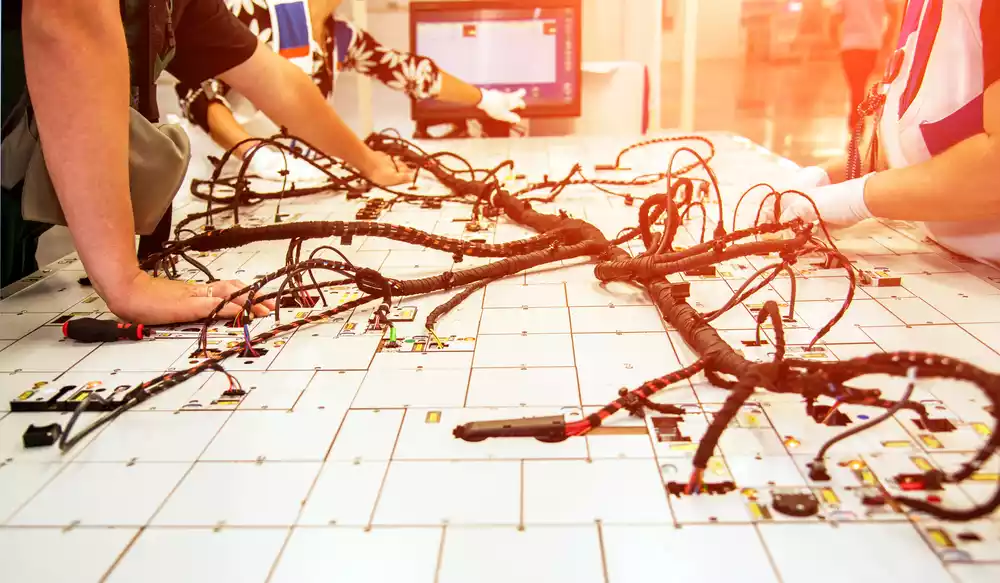
Assembly
The assembly process involves several steps:
- Wire cutting and stripping: Wires are cut to the appropriate length and stripped to expose the conductors.
- Termination: Connectors are attached to the conductors by soldering, crimping, or other methods.
- Cable harness assembly: If the cable has multiple branches, the individual wires are grouped and secured.
- Sheathing and shielding: The outer jacket is applied, and if necessary, shielding is added to protect against electromagnetic interference (EMI).
Testing and quality control
Each custom cable undergoes rigorous testing to ensure it meets specifications.
- Continuity test: Verifies that there is a complete electrical connection between the connectors.
- High-voltage test: Checks the insulation of the cable.
- Resistance test: Measures the resistance of the cable.
- Functional test: Simulates actual operating conditions to ensure the cable performs as intended.
Advantages of custom cables
From the moment you seek custom cables, you will obtain advantages and the best management of the wiring for the needs that are required. Working with custom cables from the start ensures the best use of these and the possibility of standardizing the process through the same assembly line.
At the same time, your company is provided with other advantages, such as:
- Optimal performance: Custom cables are designed to deliver the best possible performance in a specific application.
- Reliability: By using high-quality components and undergoing exhaustive testing, custom cables are very reliable.
- Efficiency: Custom cables can improve assembly efficiency by eliminating the need for adaptations or modifications to standard cables.
- Failure reduction: By adapting to the exact needs of an application, custom cables can reduce the risk of electrical failures.
Compliance with regulations and standards on customized cables
Regulatory compliance and industry standards are critical aspects of custom cable manufacturing. They ensure that products are not only safe and reliable but also meet legal requirements and market expectations:
Regulations and Key Directives
- RoHS (Restriction of Hazardous Substances): This directive restricts the use of hazardous materials such as lead, mercury, cadmium, hexavalent chromium, PBB, and PBDE in the manufacture of electrical and electronic equipment.
- REACH (Registration, Evaluation, Authorization, and Restriction of Chemicals): REACH is an EU regulation that addresses the production and use of chemicals and their potential impacts on both human health and the environment.
Industry Standards
- UL (Underwriters Laboratories): UL is a safety certification organization that develops standards and tests products, including cables.
- ISO (International Organization for Standardization): ISO is an independent, non-governmental organization that develops standards to ensure quality, safety, and efficiency.
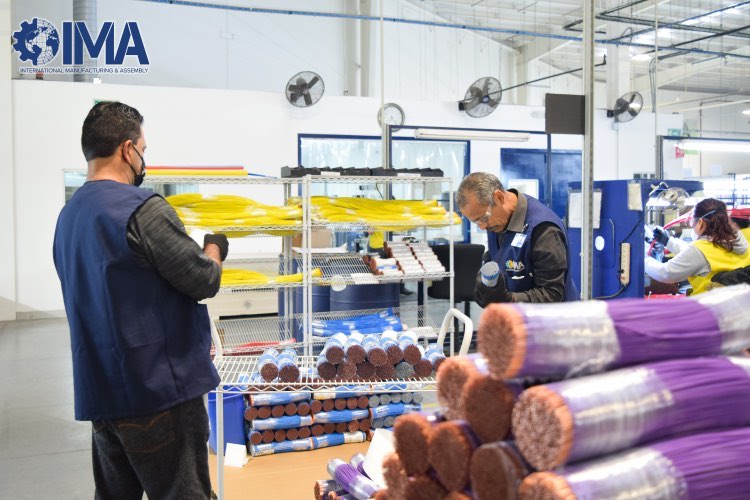
Partner with IMA, your partner for custom wiring solutions
At IMA, we understand the importance of perfect wiring. We specialize in the design and manufacture of custom cables for a wide range of industries, including automotive, aerospace, and medical.
IMA adheres to all relevant industry regulations and holds the necessary certifications for custom cable manufacturing, ensuring that our products meet the highest standards of performance, reliability, and safety.
Whether you require a cable assembly in Arizona or need our services elsewhere, our approach is to adapt to the exact needs of each client, guaranteeing unmatched performance, reliability, and efficiency. We can be your partner for all your cable assembly needs.
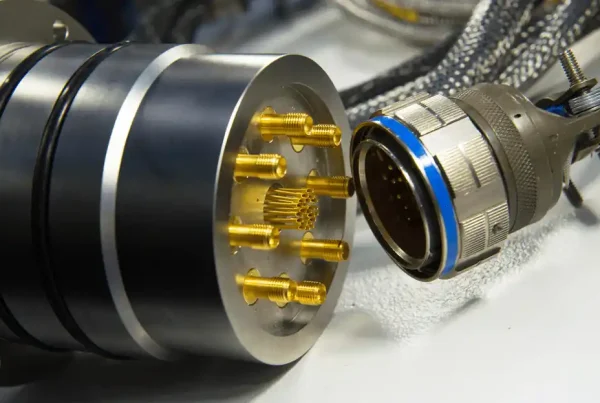
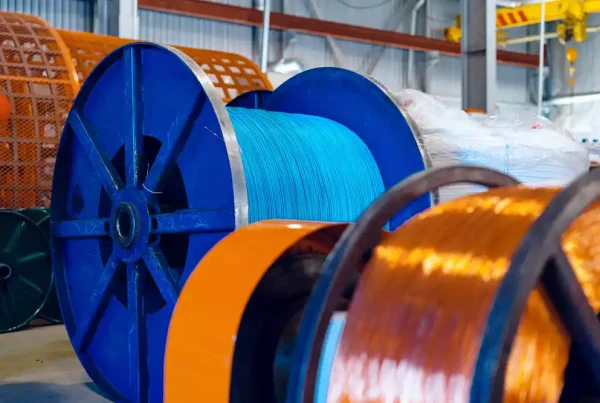
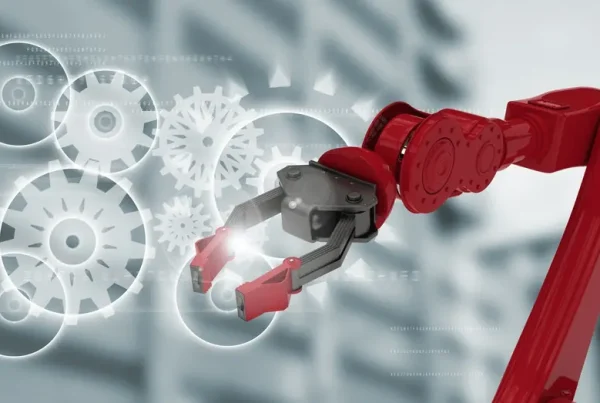
Recent Comments